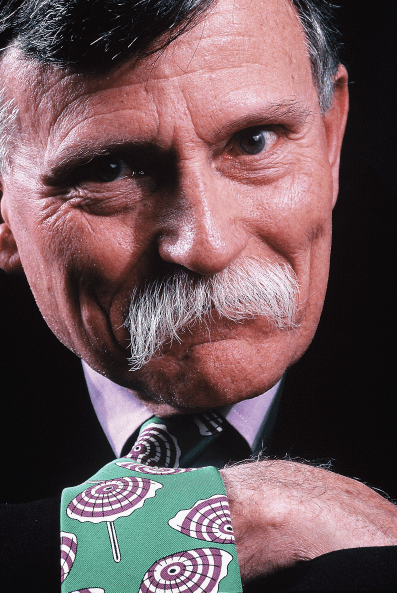
The DAN/R. W. “Bill” Hamilton Research Grant was a 12-month, US$10,000 research grant established by Divers Alert Network in memory of R. W. “Bill” Hamilton, Ph.D. Dr. Hamilton conducted research in diving physiology and the treatment of injured divers and authored numerous papers, reports and workshop proceedings. Dr. Hamilton passed in 2011 at the age of 81.
The US$10,000 award supported new or continuing research in one or more of the following areas: development of decompression procedures; development of new decompression models; probability of risk or probabilistic modeling; multi-gas dive simulation; dive computer procedures, protocol and testing; and/or treatment of incomplete decompression and resulting incidents.
We are not currently accepting applications for the Hamilton Grant, but you can learn about past recipients below.
GRANT RECIPIENTS
Mechanics of Gas Bubble Formation and Dissolution in Spinal Cord Tissue
Jens-Christian Meiners
2019 DAN/R. W. “Bill” Hamilton Grant Recipient
University of Michigan
The 2019 DAN/R. W. “Bill” Hamilton Grant was awarded to Jens-Christian Meiners, Ph.D., of the University of Michigan. His project focuses on exploring spinal cord decompression sickness (SC-DCS) and the dynamics of gas bubble formation. This study will involve compressing and rapidly decompressing spinal cord tissue to induce bubble formation inside magnetic resonance imaging (MRI) scanners to identify any tissue damage that may arise.
Read more about the project here.
Hypoxia Signatures in Closed Circuit Rebreather Divers
Daniel Popa
2018 DAN/R. W. “Bill” Hamilton Grant Recipient
University of California San Diego Medical Center/Universidad Marista de Merida
The 2018 DAN/R. W. “Bill” Hamilton Grant was awarded to Daniel Popa, M.D., Ph.D., an emergency medicine physician at the University of California San Diego Medical Center and an adjunct professor of clinical epidemiology and research methods at the Universidad Marista de Merida. His study focused on the incidence of hypoxia in rebreather divers. Hypoxia, or insufficient oxygen to sustain bodily functions, is a hazard that closed-circuit rebreathers (CCRs) can experience when failures occur with their equipment.
Read more about the project here.
Improving Decompression Science: Redefining Decompression Modeling
Virginie Papadopoulou, Ph.D.
2017 DAN/R. W. “Bill” Hamilton Grant Recipient
University of North Carolina
Dr. Papadopoulou has a background in physics and bioengineering. She is an assistant professor in the Dayton Lab at the University of North Carolina at Chapel Hill, where her primary research addresses ultrasound imaging and cancer therapy using special formulations of microbubble contrast agents. Since receiving the Hamilton grant to support her research on improving decompression science by redefining decompression modeling to limit decompression stress, Dr. Papadopoulou has become a valued collaborator for DAN. She has advanced this initial grant into a multiyear research project, which is now also funded by the Office of Naval Research (ONR).
Read more about our collaborative projects with Dr. Papadopoulou:
Occupational Saturation Divers on the Norwegian Continental Shelf
Ingrid Eftedal, Ph.D.
2016 DAN/R. W. “Bill” Hamilton Grant Recipient
Norwegian University of Science and Technology
Dr. Eftedal is an experienced dive medicine researcher with a background in biophysics and molecular biology. She is currently the principal investigator for a project titled Fitness to dive – a translational approach to physiological challenges in the hyperbaric working environment. The aim of Dr. Eftedal’s current research is to achieve an improved understanding of the immune system’s role in reactions and acclimatization to diving. Dr. Eftedal used the Hamilton grant to support a study on occupational saturation divers on the Norwegian continental shelf. The results of her study will provide information that may be applied to prepare divers and protect them from injury, which closely aligns with DAN’s mission to advance diving science and promote dive safety.